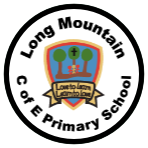Science
Science is an exciting, interactive, practical subject. We have developed our curriculum to ensure a clear progression of knowledge throughout a child's time at our school. Our science curriculum map (click on the link at the bottom of the page) shows you in more detail what children study at Long Mountain.
Science in the National Curriculum (2015)
A high-quality science education provides the foundations for understanding the world through the specific disciplines of biology, chemistry and physics. Science has changed our lives and is vital to the world’s future prosperity, and all pupils should be taught essential aspects of the knowledge, methods, processes and uses of science. Through building up a body of key foundational knowledge and concepts, pupils should be encouraged to recognise the power of rational explanation and develop a sense of excitement and curiosity about natural phenomena. They should be encouraged to understand how science can be used to explain what is occurring, predict how things will behave, and analyse causes.
Aims
The national curriculum for science aims to ensure that all pupils:
- develop scientific knowledge and conceptual understanding through the specific disciplines of biology, chemistry and physics
- develop understanding of the nature, processes and methods of science through different types of science enquiries that help them to answer scientific questions about the world around them
- are equipped with the scientific knowledge required to understand the uses and implications of science, today and for the future
Our Science Curriculum:
At Long Mountain, we aim to develop the following threshold concepts in Science: working scientifically, biology, chemistry and physics. This will enable the children to:
- The ability to think independently and raise questions about working scientifically and the knowledge and skills that it brings.
- Confidence and competence in the full range of practical skills, taking the initiative in, for example, planning and carrying out scientific investigations.
- Excellent scientific knowledge and understanding which is demonstrated in written and verbal explanations, solving challenging problems and reporting scientific findings.
- High levels of originality, imagination or innovation in the application of skills.
- The ability to undertake practical work in a variety of contexts, including fieldwork.
- A passion for science and its application in past, present and future technologies.
Implementation
We plan for a weekly lesson of Science as a discrete subject to ensure children know and understand more. There is flexibility in how and when our lessons are taught in order to help our pupils develop and retain the information within their long-term memory.
Our rolling programme has been adopted to cater for our mixed age class structure. This will be reviewed regularly depending on the overall school structure as our class groups often change from year to year.
Our curriculum has been developed using the Chris Quigley 'Essentials Curriculum.’ This ensures that learning is engaging and developed by the pupils revisiting the threshold concepts from Year 1 to Year 6 in order to ensure all pupils progress.
Impact
We measure our pupil’s success in Science against the Threshold Concepts (key areas of learning that the children revisit in each unit of work):
Working Scientifically
- This concept involves learning the methodologies of the discipline of science.
Chemistry
- Investigate materials: This concept involves becoming familiar with a range of materials, their properties, uses and how they may be altered or changed.
Biology
- Understand plants: This concept involves becoming familiar with different types of plants, their structure and reproduction.
- Understand animals and humans: This concept involves becoming familiar with different types of animals, humans and the life processes they share.
- Investigate living things: This concept involves becoming familiar with a wider range of living things, including insects and understanding life processes.
- Understand evolution and inheritance: This concept involves understanding that organisms come into existence, adapt, change and evolve and become extinct.
Physics
- Understand movement, forces and magnets: This concept involves understanding what causes motion.
- Understand the Earth’s movement in space: This concept involves understanding what causes seasonal changes, day and night.
- Investigate light and seeing: This concept involves understanding how light and reflection affect sight.
- Investigate sound and hearing: This concept involves understanding how sound is produced, how it travels and how it is heard.
- Understand electrical circuits: This concept involves understanding circuits and their role in electrical applications.
As well as the Threshold Concepts, we measure the impact of our curriculum through the following methods:
- Photo and video evidence of the pupils practical learning – either in lessons, STEM days or other events.
- Pupil’s achievement, self-confidence, interaction with and awareness of others.
- Pupil’s self-reflection of their learning – discovering their own areas of strength, as well as areas they might like to improve upon.
- Their enjoyment and interest in Science.
Aspirations For The Future
Pupils develop an understanding of how subjects and specific skills are linked to future jobs. Here are some of the jobs you could aspire to do in the future as a Scientist:
- Aquatic vet
- Astronaut
- Animal researcher
- Marine biologist
- Helicopter mission control
- Weather presenter
